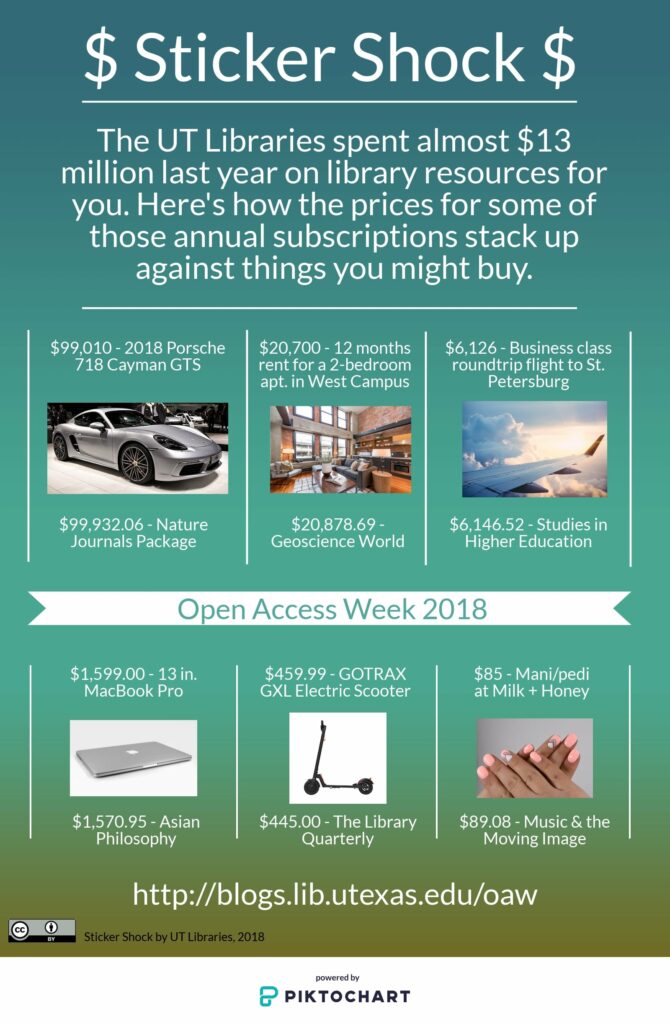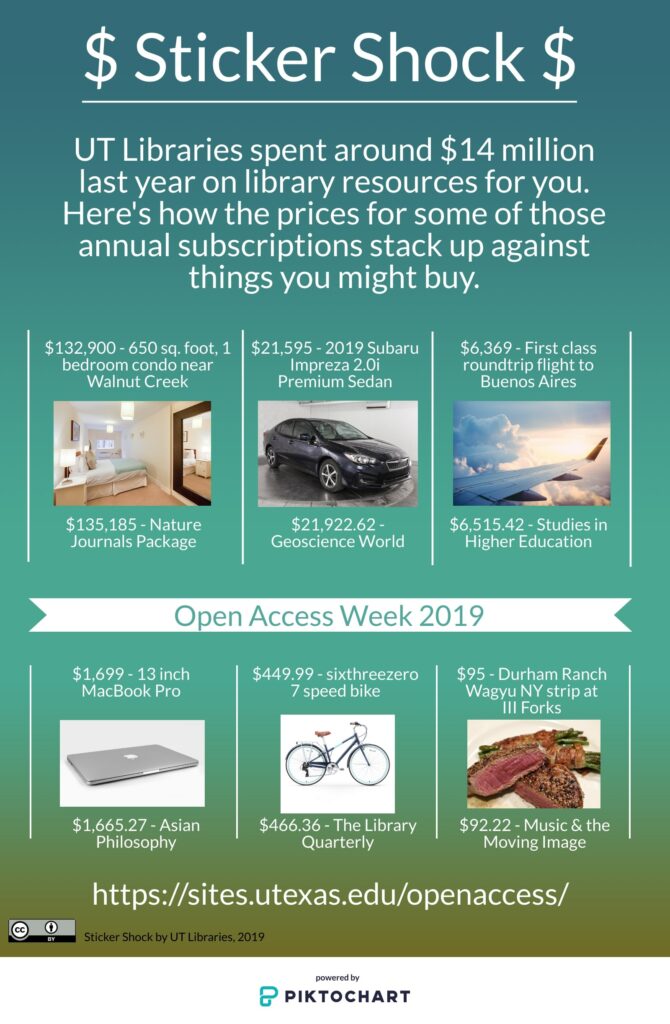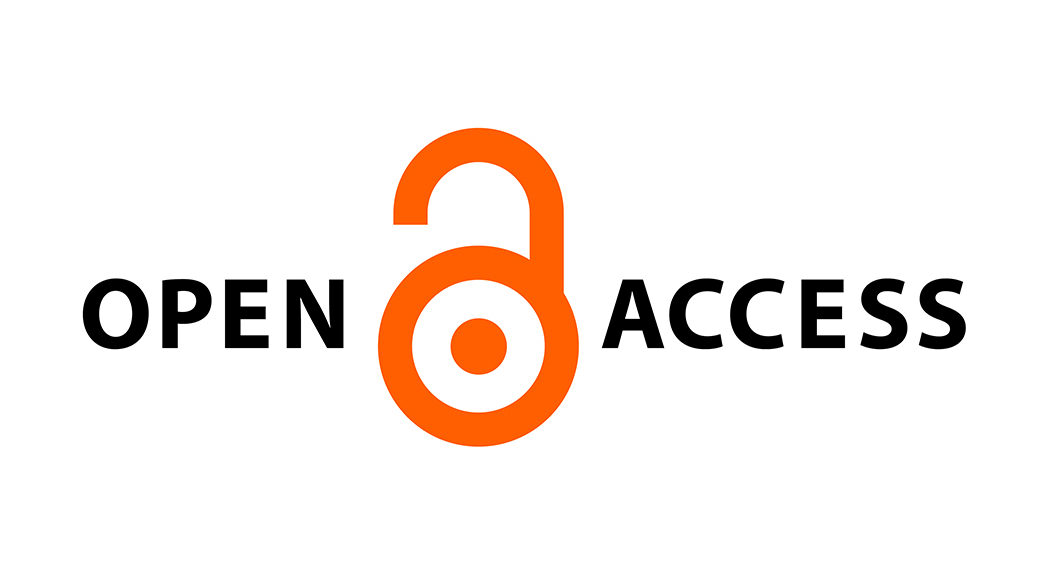This October 21st-27th marks the tenth instance of Open Access Week – an international event providing the academic community with opportunities to learn more about Open Access (OA), to share existing OA knowledge with others, and to encourage greater engagement with OA principles and practices. Building on a decade of global action, this year’s theme of “Open for Whom? Equity in Open Knowledge” calls for participants around the world to interrogate the motives, efforts, and outcomes associated with the Open Access movement and to posit solutions toward building a more equitable and inclusive scholarly environment.

Over the years, UT Libraries has made strong efforts toward widening access to scholarship. Just last year, we celebrated 10 years of Texas ScholarWorks, our institutional repository providing open, online access to the products of the university’s research and preserving these works for future generations. This digital portal allows users from all walks of life to engage with scholarly materials and to be aware of groundbreaking research developments free of cost.
While Texas ScholarWorks has been and continues to be a kind of backbone in our Open Access initiatives, it’s by no means the only work we’re doing in this critical area. More recently we’ve discussed our Latin American post-custodial archiving projects and the role they play in access to and preservation of valuable information relating to human rights violations. LLILAS Benson Digital Initiatives, in partnership with El Salvador’s Museum of the Word and the Image (MUPI) and with generous support from the Andrew W. Mellon Foundation, is preparing to publically release an online, digital collection “of remarkable embroidered testimonies created by refugee Salvadoran peasant women in Honduras during the civil war.” The opportunity to highlight the struggles and resilience of historically disempowered communities, in close collaboration with individuals from those communities, is a beautiful example of the kind of work that is possible in Open Access.
One of the most pressing and widely addressed issues in Open Access discussions is the rising cost of library subscriptions for online journal and database access. Last year, UT Libraries spent roughly $14 million on library resources to support students, faculty, and staff at the university. In the below Sticker Shock visualizations for annual subscription costs in 2018 and 2019, you can see just how much some already high fees have risen in only a single year.


In order to continue providing high levels of scholarly access and research support, libraries have had to be very thoughtful in their purchasing process, and they’ve also had to make sacrifices. With flat budgets and increasing costs, where libraries choose to spend their money can quickly become a matter of inequity. When you only have so many dollars to spend, whose scholarship is considered “worth it” and whose is not? One way UT Libraries seeks to alleviate this issue of rising costs while supporting a more sustainable and equitable system of publishing and access is through our Open Memberships fund. By financially supporting open infrastructure projects, we seek to encourage greater innovation and equity in the scholarly communications ecosystem.
If you’re interested in learning more about Open Access at UT Libraries, please join a few of our librarians for Open Access Week Trivia in the Perry-Castañeda Library lobby from 2-4 p.m. on Tuesday, October 22nd and check out our Open Access blog. If you want to keep track of Open Access Week news happening outside of UT, you can follow the official event hashtags on Twitter (#OAWeek and #OpenForWhom).

